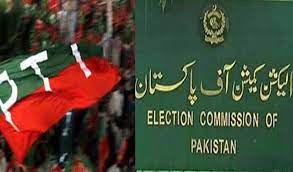The Election Commission of Pakistan (ECP) has officially filed a review petition against the Supreme Court’s decision on reserved seats, intensifying the ongoing political debate in the country.
The move comes as political tensions rise, with major parties divided over the implications of the court’s ruling.
On July 12, the Supreme Court overturned previous decisions by the Peshawar High Court and the ECP, granting reserved seats to the Pakistan Tehreek-e-Insaf (PTI).This decision recognised PTI as a parliamentary entity, significantly impacting the balance of power in national and provincial assemblies.
The ECP argues that the decision “unfairly” favoured PTI, allowing the party to gain reserved seats without meeting the necessary constitutional requirements.
The petition highlights errors in the court’s judgment, claiming that the ruling discriminates against other political parties and fails to uphold constitutional principles.The controversial verdict has already prompted the Pakistan Muslim League-Nawaz (PML-N) and the Pakistan Peoples Party (PPP) to file appeals.
The federal government and allied parties have also expressed their intentions to contest the court’s decision, citing concerns over its impact on Pakistan’s political landscape.In response, the Supreme Court’s Practice and Procedure Committee has decided to schedule the review petitions after the September recess, indicating that the legal battle over reserved seats is far from over.
The ECP’s review petition underscores the growing political divide in Pakistan, as parties navigate the complexities of power dynamics and legal challenges.The outcome of these appeals will be closely watched, as it could reshape the country’s political scene and influence future elections.
This decision recognised PTI as a parliamentary entity, significantly impacting the balance of power in national and provincial assemblies.The ECP argues that the decision “unfairly” favoured PTI, allowing the party to gain reserved seats without meeting the necessary constitutional requirements.
The petition highlights errors in the court’s judgment, claiming that the ruling discriminates against other political parties and fails to uphold constitutional principles.


